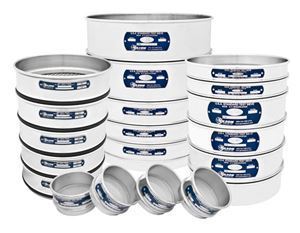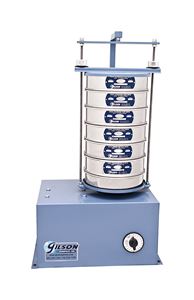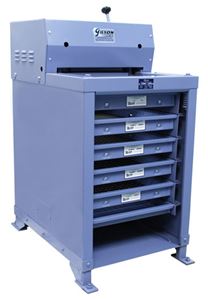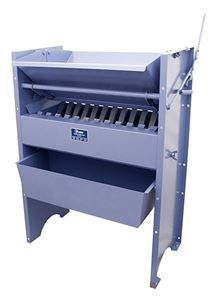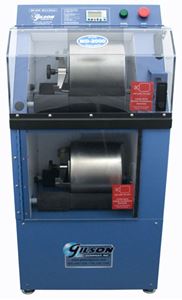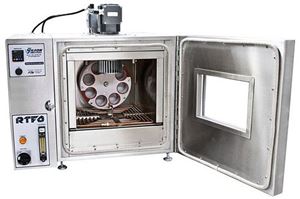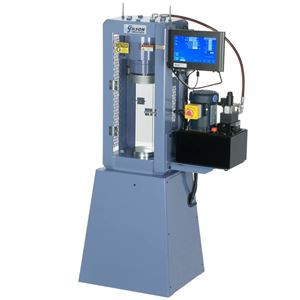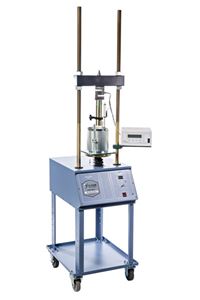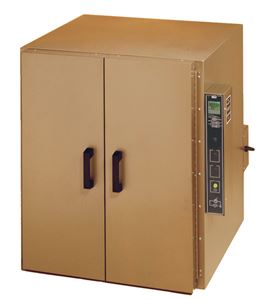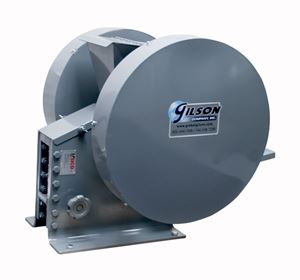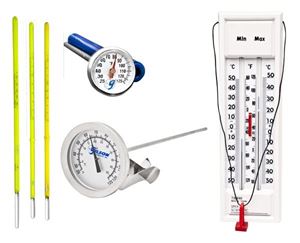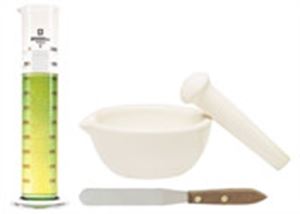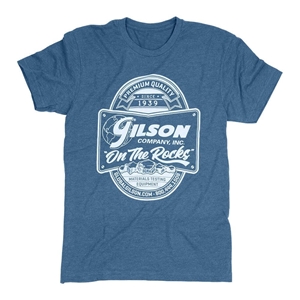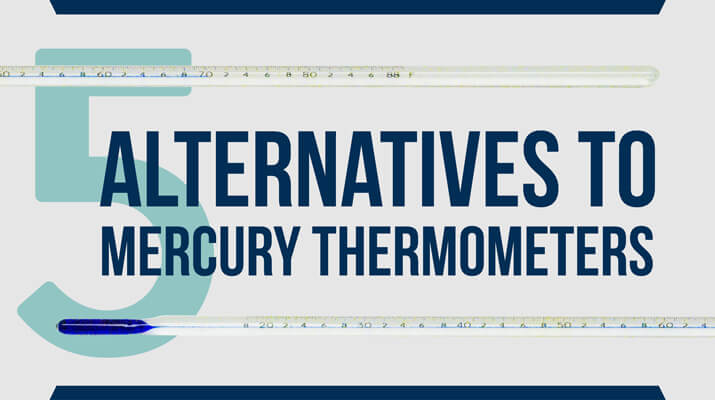
Mercury is increasingly recognized as a material that’s difficult to ship, can be hazardous to the environment, and presents high costs if spillage occurs. Regulatory measures are confusing, complex, and vary widely from state to state, and even between local areas. Standards organizations such as ASTM and AASHTO recognize the difficulties mercury thermometers present and requirements of many testing procedures are being modified to incorporate the use of non-mercury thermometers. Here at Gilson, we want to make it as easy as possible to identify the best alternative devices for your application, if mercury thermometers are not an option for you.
In addition to some non-mercury thermometric equipment options to be aware of, this blog post will provide information on indicating fluids used in thermometers instead of mercury. It will also explore a range of digital devices available for lab or field measurements.
ASTM Non-Mercury Thermometers
ASTM Non-Mercury Thermometers comply with test method requirements for use in their referenced applications and duplicate performance characteristics of ASTM Mercury-filled Thermometers, but use a safe blue liquid indicating fluid.
Performance Features:
- The liquid-in-glass fluid is biodegradable, non-toxic, and nonhazardous
- The dark blue color is highly visible against the white-backed stem for accuracy
- Thermometers may optionally have NIST traceable five-point certification by ISO/IEC accredited labs
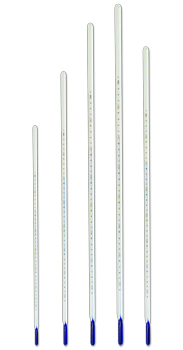
ASTM Equivalent Non-Mercury Thermometers
ASTM Equivalent Non-Mercury Thermometers have the same physical and performance characteristics as ASTM Non-Mercury Thermometers and the same ranges and divisions as ASTM Mercury-filled thermometers, but not all have been reviewed by ASTM subcommittees for their referenced applications. These thermometers also use a safe blue indicating liquid instead of mercury.
Performance Features:
- The liquid-in-glass fluid is biodegradable, non-toxic, and nonhazardous
- The dark blue color is highly visible against the white-backed stem for accuracy
- Thermometers may optionally have NIST traceable five-point certification by ISO/IEC accredited labs

Digital Thermometers
Digital Thermometers are useful for a variety of applications such as air or fluid readings, surface temperatures, high-temperature applications, and more. Today, digital thermometric technologies are versatile and generally superior to the mercury-in-glass design, with wider effective temperature ranges and faster equilibration.
Performance Features:
- Accurate, durable, and easy-to-operate; no risk of glass breakage
- Clear LCD displays show fine resolutions with no interpolation needed between division marks
- Maximum-minimum, memory, alarms, and switchable temperature units are available
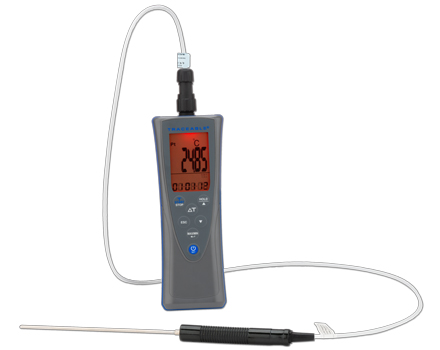
4-Channel Thermometers
4-Channel Thermometers use up to four optional probes to display data on a backlit LCD screen in °C or °F using standard Type K Thermocouples.
Performance Features:
- The backlit LCD screen offers clear visibility of temperatures in °C or °F
- The automatic shut-off feature conserves battery life
- Auto-ranging, Max/Min and hold functions offer convenient, automated temperature determinations
- Accuracy to ±0.5% of reading +1°C or 2°F, full-scale
- The available model features data-logging capabilities for advanced documentation
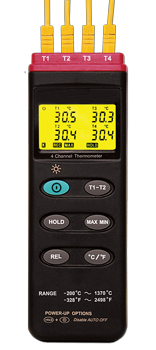
Basic Type K or J Thermometers
Basic Type K or J Thermometers deliver precise temperatures for many different applications.
Performance Features:
- Max/min memory hold
- Auto-power preserves battery life
- Four-digit LCD screen seamlessly switches from °C to °F
- Accurate to ±0.05% of reading +0.7°C (1.4°F)
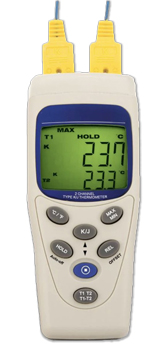
You should be aware of state/regional restrictions. If there are no restrictions in your area, we’ll continue to ship mercury thermometers to you.
Gilson Is Here to Help
Contact our testing experts for more information or to discuss your testing application.
Testing Resources
Standard Test Methods, Specifications, and Practices
Individual test methods and specifications referenced in our product descriptions, blog articles, and videos are available for review or purchase from the professional organizations noted.
- ASTM International (American Society for Testing and Materials)
- AASHTO (American Association of State Highway and Transportation Officials)
- ACI (American Concrete Institute)
- State DOTs (Departments of Transportation)
- ISO (International Organization for Standardization)
- BS (British Standards)
- EN (European Standards)


